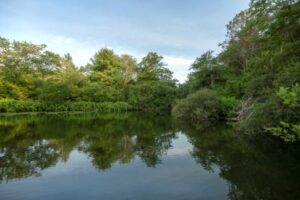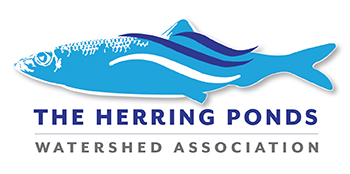Water Quality Report Fall 2022
 The Herring Ponds Watershed Association received the consultant’s Water Quality Report draft on August 19. The Review Committee, consisting of Directors Don Williams, Geri Williams, Brian Harrington, Jack Kedian, Tom O’Brien, Paul Denoncourt, and Jerry Levine and at-large members Josh Adelson, Lee Pulis, and Jim Smith have read the 125-page document and met on September 1 to develop a list of questions for Plymouth and for the consultant. That list has been written up and circulated to the Review Committee for further discussion on September 8.
The Herring Ponds Watershed Association received the consultant’s Water Quality Report draft on August 19. The Review Committee, consisting of Directors Don Williams, Geri Williams, Brian Harrington, Jack Kedian, Tom O’Brien, Paul Denoncourt, and Jerry Levine and at-large members Josh Adelson, Lee Pulis, and Jim Smith have read the 125-page document and met on September 1 to develop a list of questions for Plymouth and for the consultant. That list has been written up and circulated to the Review Committee for further discussion on September 8.
As a group, we are optimistic that with consultant and town help, we will be able to make significant improvements in the Herring Ponds water quality. While the Water Quality Report concludes that the main contributor of the phosphorus pollutant responsible for watershed quality problems is septic, it acknowledges that approaches other than providing sewers to the watershed exist.
Since sewers are expensive and will not happen soon, we plan to ask questions designed to improve the accuracy of the phosphorus estimates, investigate other possible sources of phosphorus, and consider methods for improving water quality other than sewers. This will be the focus of current efforts. We will ask our questions of the Town of Plymouth, then of our consultant. Based on the answers, we will work with our partners to design a remediation program that has a high probability to be funded.
There are reasons for optimism. We have been told that 50 kg of phosphorus in Great Herring Pond in April will meet our quality goal (April 2021 phosphorus was 116 kg). Is there an attainable midway phosphorus amount that would eliminate cyanobacteria blooms? Will a Permeable Reactive Barrier (PRB) at the Little Herring Pond exit sluiceway remove enough phosphorus to achieve that midway goal? Would selective alum treatment in the deeper GHP areas eliminate enough sediment phosphorus for that? Would a subsidized septic education, check, and pump program work? Should we consider remediation of the remaining identified GHP runoff sites? If many of these were undertaken, what quality gains would we see?
It is early in the process. We will know more after we meet with Plymouth in mid-September. We will continue to keep you informed. Meanwhile, check your septic tank, have it pumped out if needed, don’t clearcut down to the ponds, clean up yard animal waste, and ask your landscaping service not to use fertilizer containing phosphorus. The vast majority of the phosphorus that is causing our problems enters the Ponds from the surrounding watershed every year; it does not reside in the Ponds and leach out with time.
It is up to us to be the caretakers of this watershed resource.
Don Williams, Water Quality Committee Co-Chair

Comments
Water Quality Report Fall 2022 — No Comments
HTML tags allowed in your comment: <a href="" title=""> <abbr title=""> <acronym title=""> <b> <blockquote cite=""> <cite> <code> <del datetime=""> <em> <i> <q cite=""> <s> <strike> <strong>